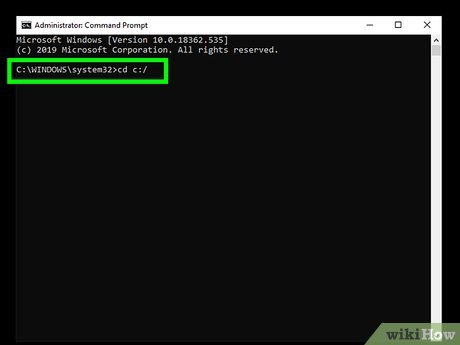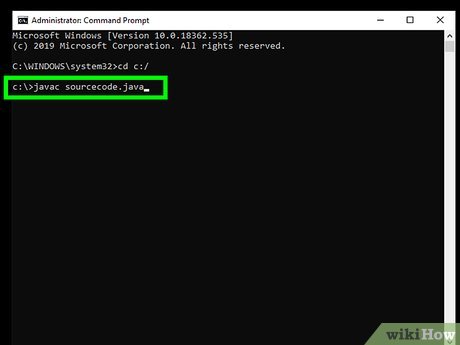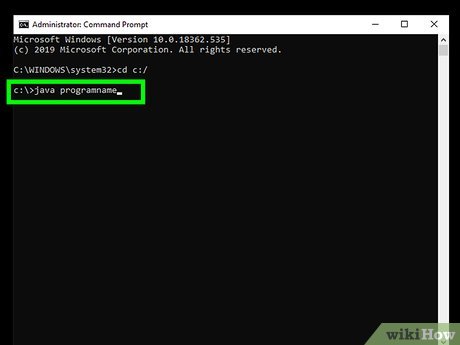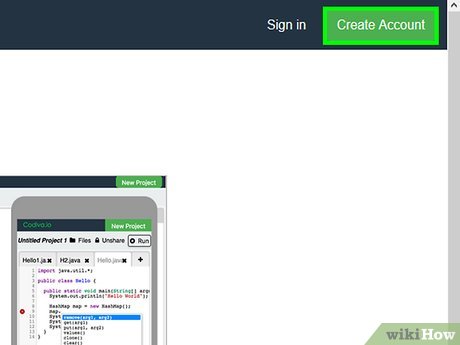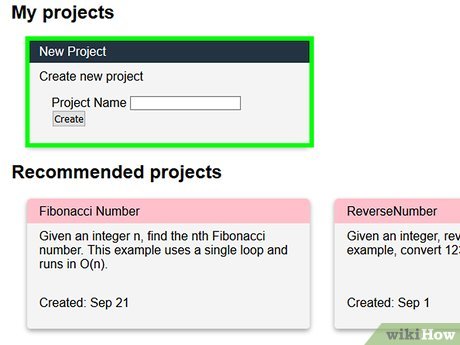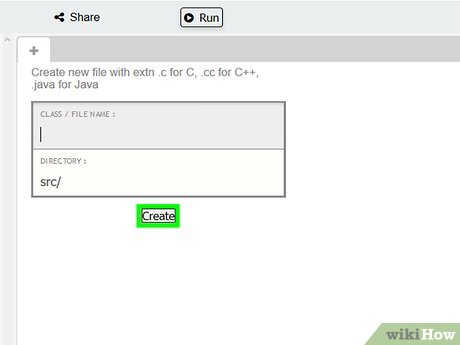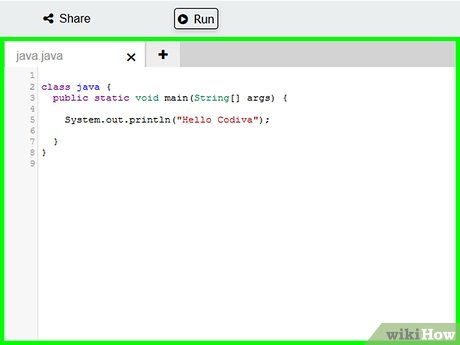How to Compile a Java Program
Method 1 of 2:
Using Java Software Development Kit
-
 Open the command prompt. You can use the Java Software Development Kit (Java SDK) from the command prompt on Windows, macOS, or Linux. If you don't have the Java SDK installed, see How to Install the Java Software Development Kit. Here's how to get to the command prompt on each system:
Open the command prompt. You can use the Java Software Development Kit (Java SDK) from the command prompt on Windows, macOS, or Linux. If you don't have the Java SDK installed, see How to Install the Java Software Development Kit. Here's how to get to the command prompt on each system:- Windows: Right-click the Start menu and select Command Prompt. If you don't see this option, type cmd into the Windows Search bar and click Command Prompt in the search results.
- macOS: Click the magnifying glass at the top-right corner of the screen to open Spotlight, type terminal, and then click Terminal in the search results.
- Linux: Press Ctrl+Alt+T.
-
 Use the cd command to access the directory with your Java code. The source code is the file that ends with the .java file extension.
Use the cd command to access the directory with your Java code. The source code is the file that ends with the .java file extension. -
 Type javac sourcecode.java and press ↵ Enter or ⏎ Return. Replace sourcecode.java with the name of your source file.[1] This compiles your source code into an executable file, which ends with the .class extension.
Type javac sourcecode.java and press ↵ Enter or ⏎ Return. Replace sourcecode.java with the name of your source file.[1] This compiles your source code into an executable file, which ends with the .class extension.- To see the name of the new file in the current directory, run the dir (Windows) or ls -a (Mac/Linux) command.
- If you see an error when trying to
-
 Type java programname and press ↵ Enter or ⏎ Return. Replace programname with the name of your program. This runs the program at the command line.
Type java programname and press ↵ Enter or ⏎ Return. Replace programname with the name of your program. This runs the program at the command line.
Method 2 of 2:
Using an Online Java Compiler
-
 Navigate to https://www.codiva.io in a web browser. Codiva is an online Java compiler that's great for people who can't install a compiler locally—it can even be used on a phone or tablet.
Navigate to https://www.codiva.io in a web browser. Codiva is an online Java compiler that's great for people who can't install a compiler locally—it can even be used on a phone or tablet.- There are a variety of online compilers out there if Codiva doesn't work for your needs. Some other popular options are Jdoodle, and OnlineGDB.
-
 Sign in or create an account. If you're new to Codiva, click Create Account at the top-right corner to sign up.
Sign in or create an account. If you're new to Codiva, click Create Account at the top-right corner to sign up. -
 Enter a project name and click Create. This creates a new project, which is like a container for your source files.[2]
Enter a project name and click Create. This creates a new project, which is like a container for your source files.[2] -
 Create a Java source file and click Create. Java source files must end with the .java file extension. The new file will appear in project's tree, which appears in the right panel.
Create a Java source file and click Create. Java source files must end with the .java file extension. The new file will appear in project's tree, which appears in the right panel.- For example, if you're creating a Java program called HelloWorld, name the source file HelloWorld.java.
-
 Write or paste your code into the editor. The code will compile in the background as you type. Additionally, it will display any code errors as they occur.
Write or paste your code into the editor. The code will compile in the background as you type. Additionally, it will display any code errors as they occur. -
 Click Run to run the program. Since the code compiles automatically, clicking Run will just launch your app in its current state.
Click Run to run the program. Since the code compiles automatically, clicking Run will just launch your app in its current state.
Share by
Jessica Tanner
Update 05 March 2020

